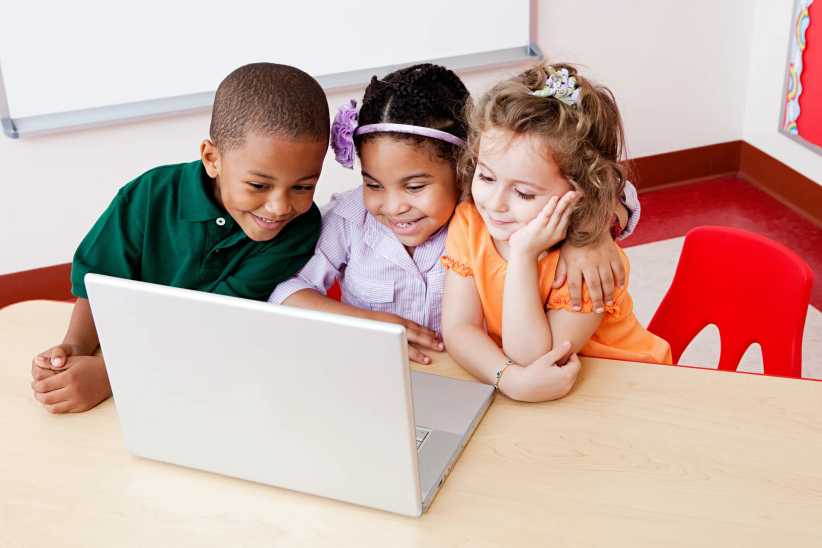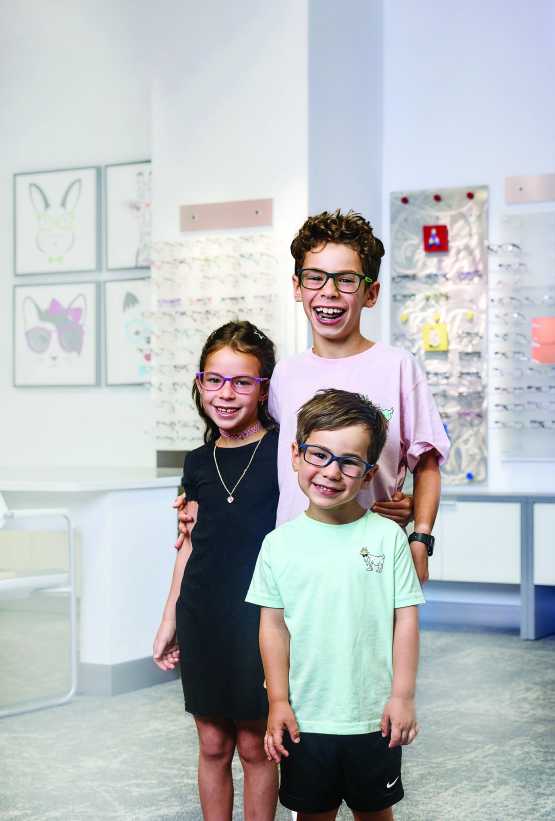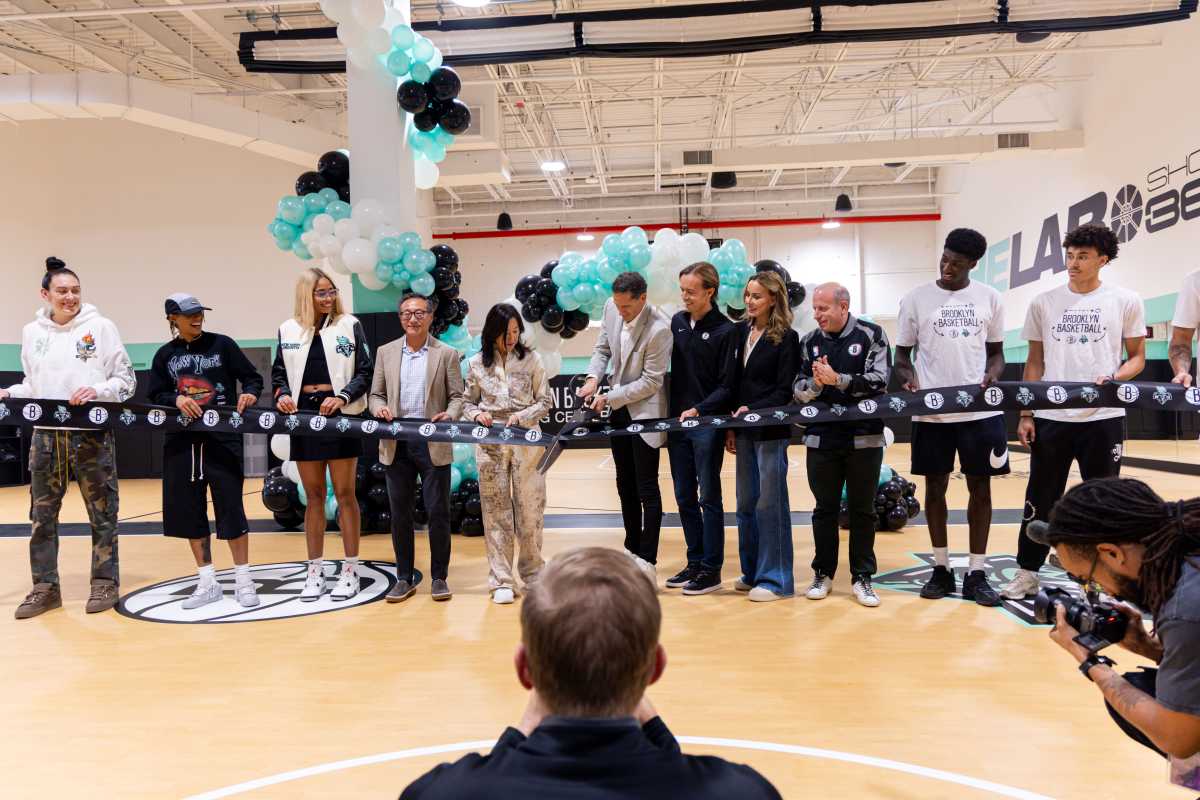
Preschool rock favorite Laurie Berkner knows how important learning about music can be for children. Before starting her own band and making appearances as a performer on Nickelodeon, she was a preschool music specialist where she saw the positive effects that songs could have on toddlers. Now, she not only writes and performs children’s music as the goddess of kiddie rock, she’s also a mom who likes to jam with her eight-year-old daughter. As she was gearing up for her new holiday album, released at the end of last month, the educator-musician took the time to riff on her best advice for getting children interested in music and playing instruments.
Tell us about your musical background.
I started on the piano when I was around seven. I took up the clarinet in 4th grade and the violin in 6th grade, and I was in choir the entire time. I didn’t pick up the guitar until I was about 17, when I was babysitting for a girl who was learning to play.
My parents were musical. We would always listen to opera and classical music, and my dad played the violin. They originally suggested piano lessons, but they never pushed me to practice. When we had recitals, I felt like I was going to throw up because I didn’t practice enough. I was very nervous playing an instrument in front of other people.
How did you combat that fear of performing in front of other people?
I still feel nervous before going on; I just got used to it. It wasn’t so much performing in front of people as it was playing an instrument in front of people. It took me a long time before I felt like the guitar was part of my body, and before I felt that with an instrument, I never felt comfortable performing. So it was more about growing as a musician.
When did you get started writing music for children?
I started writing songs when I took a year off from college and lived in West Africa. Then it wasn’t until 1992, when I got a job as a preschool music specialist at Rockefeller University’s Child and Family Center, that I started working with children’s music. I realized it was hard to find songs that the kids liked that I knew how to play—so I just asked them what they wanted to sing and made up my own songs.
What’s a good way to introduce children to music?
I feel like you can play so much music for kids at any point, and they will take in what they take in, and you’ll start to see what they’re interested in. In my experience, kids like certain music because they feel like it’s their own. If they’re under five years old, the exposure to songs they can sing along to especially makes them feel like they have a mastery of it.
At what age do you think it’s appropriate for children to start taking lessons?
I took my own daughter, Lucy, when she was four years old to a music class where she learned about notes. But when I worked with children her age, I was more about instilling an enjoyment of music and of learning how to express feelings in music. I think feeling confident about expressing yourself by moving and singing is a great goal for preschoolers.
With instruments, it really depends on how interested the kid is. If your kid shows an interest at four years old and wants to learn something, then follow that enthusiasm. Otherwise, expecting them to do something long-term at a young age could be really disappointing for a parent and frustrating for a child.
When kids are in the 5-7 range, they have the attention span to practice. I’ve always recommended piano first because it’s visual and fun. However, my daughter started on the drums because that’s all she wanted to do.
What have you learned about the relationship between children and music?
One thing I noticed was how important a voice can be. Rhythm is also very important since children have been moving longer than they’ve been talking. They have a deeper connection to their own movements. So there’s this desire to move with the music; the vocals can help them become more tuned into language.
It’s really amazing how much kids can take in and how strongly songs can engage them. Sometimes if I play a more melancholy song at the end of class, kids will start crying and realizing that they miss their parents. Music can give them that space to find emotions that aren’t so easy to deal with. If there’s a song that lets them stomp around or yell, it can be a great way for kids to express their anger.
How can kids who aren’t musically inclined become music lovers?
To experience and enjoy music doesn’t have to mean that you’re musically inclined—you just have to be moved by music in some way. (But there are different levels of that enjoyment.)
I have a friend whose child plays piano, and she sits there while he practices. When I do it with my own daughter, I’ve noticed that she’s more interested in practicing in my presence. So it’s about connecting music with love, which usually comes from our families and our parents.
Tell us about playing music with Lucy.
She loves to help me write my songs, and I help her when she’s practicing the drums. We also sing together around the apartment a lot, especially if we’re improvising in the moment together.
Do you have any suggestions for music-related activities that parents can do with children?
For younger kids, it’s nice to have music in the background, but it’s better to get up and dance with your kids when it’s on. Show your kids that you’re having fun with music. Or, make a shaker: blow up a balloon and paper mache it; then put rice or beans inside and cover up the end. You can also paint the entire thing. It’s fun to use while listening to music.
For older kids, I think it’s really great to take them to concerts or go hear music as a family. On Christmas Eve, our family would pull out the Christmas carol book and my dad would play his violin. As I got older, my brother and I would play instruments, too. It was a nice way to experience music together as a family.
Keep reading for Laurie’s top songs for kids.
WHERE TO MAKE MUSIC THIS FALL
Have Some Fun (Younger Kids)
74th St. MAGIC, 74magic.com
92Y, 92Y.org
apple seeds, appleseedsnyc.com
Applause New York (0-5), applauseny.com
Eastside Westside Music Together, eswsmusictogether.com
Gymboree Music, gymboreeclasses.com
Gymtime Rhythm & Glues, gymtime.net
Hands On!, handson4music.com
The JCC in Manhattan, jccmanhattan.org
Kidville, kidville.com
Little Maestros, littlemaestros.com
Moey’s Music Party, moeysmusicparty.com
Music For Aardvarks, musicforaardvarks.com
Music Together In The City, musictogethernyc.com
Musical Kids International, musicalkids.net
School For Strings, schoolforstrings.org
The Early Ear, theearlyear.com
TLB Music, tlbmusic.com
WeBop At Jazz At Lincoln Center, jalc.org
Get Serious (Older Kids)
92Y School Of Music, 92y.org
Applause New York (5-10), applauseny.com
Church Street School For Music And Art, churchstreetschool.org
The Diller-Quaile School Of Music, diller-quaile.org
Greenwich House Music School, greenwichhouse.org
Lucy Moses School, kaufman-center.org/lms
Third Street Musical School Settlement, thirdstreetmusicschool.org
Turtle Bay Music School, tbms.org
Riverside Piano Studios, riversidemusicstudios.com












